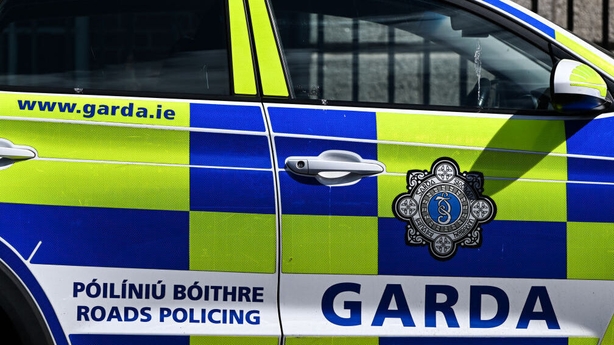Priority actions on road safety "are being delivered" said Taoiseach Simon Harris after he chaired a meeting of the Ministerial Committee on Road Safety.
The committee, which has oversight of delivery of the Government's strategy on road safety and is made up of road safety stakeholders, met with the Taoiseach to provide updates on progress being made in a range of areas.
It comes as the Road Safety Authority (RSA) and An Garda Síochána renewed their appeal to all motorists to act responsibly when travelling on the roads this weekend and called on all drivers to slow down.
Bank Holiday weekends are traditionally high-risk periods for crashes related to speeding, alcohol and drugs.
So far this year, 69 lives have been lost on roads, an increase of 16 on the same period last year.
Speed has been identified as a major contributory factor in the high number of fatalities.
Mr Harris said there was a need to "urgently reverse this worrying trend" of road deaths.
He said that at the meeting of the road safety committee, he "received reassurance that priority actions are being delivered".
We need your consent to load this rte-player contentWe use rte-player to manage extra content that can set cookies on your device and collect data about your activity. Please review their details and accept them to load the content.Manage Preferences
"It was also agreed that in advance of the summer recess, a progress report on road safety will be submitted to the Government following a further meeting of the Road Safety Ministerial Committee," he added.
The RSA said a survey has shown that one in four drivers think that speeding 10km/h over the limit is acceptable.
Average speed cameras are to be installed on the N2, N3 and N5 roads. The locations are being finalised and they are set to be operational later this year.
A National Camera Strategy is being worked on and the locations of nine new static speed cameras were recently announced.
Legal advice is being sought by the Department of Transport on whether legislative changes are needed to the use of camera-based enforcement to detect people not wearing a seatbelt or drivers using a mobile phone.
Gardaí are confident that the new static speed cameras will make a difference.
''These cameras will be very visible. People will know they are there,‘’ said Paula Hilman, Assistant Garda Commissioner.
‘’We already see in the Port Tunnel in Dublin with the average speed camera which has been operational for a longer period of time. We see in the region of 98% compliance rates. It slows people down and that's what we want to do. We want to slow people down to save lives.’’
'Positive outcomes' of 30 mins roads policing
Ms Hilman emphasised to motorists the need to slow down, to never drink or take drugs and drive, and to not be distracted over the Bank Holiday weekend.
She said there has been "some positive outcomes" following the introduction of the 30 minutes of roads policing per shift for all uniformed gardaí last month and the number of detections for road traffic offences has increased.
Normally around 500 people a month are caught driving "whilst unaccompanied".
In the first two weeks of the 30 minutes policy, the number caught was 261 which amounted to an increase of 18%, she said.

There have also been increased detections of mobile phone use, driving without a seatbelt as well as driving with out NCT or insurance.
Ms Hilman added that while the recent roads policing policy was about "enforcement", it was also about "education" and "garda visibility".
She said schools are among the "vulnerable locations" on roads and that it involves some of the gardaí being deployed around school start and finish times.
Other days of action are planned to highlight tyre safety, mobile phone use and driving without insurance.
'Time to Talk' about road safety
A new "hard-hitting" safety campaign titled 'Time to Talk' will resemble a blank death notice to remind people to be safe on the roads.
Minister of Transport at the Department of Transport Jack Chambers told RTÉ News: ''We've a new advertising campaign which is focused on the real devastating consequences that road fatalities have on families and communities. It resembles a death notice, a blank death notice, and we're asking people to really remind themselves of the road safety legislation and rules.
"It could be you. It could be a family member, it could be a friend. And to really not put yourself or your loved one in that place and to speak to them about the real devastating consequences that road fatalities are having right across the country.’’
The RSA has appealed to young drivers in particular to be extra vigilant on the roads.
"Young men highlighted to us that a conversation with a close family member or a friend, a mum or a girlfriend in particular, was the thing that they felt might be really influential in getting them to rethink their relationship with speed in particular, but with those other dangerous road behaviours as well,’’ said Sarah O’Connor from the RSA.
So far this year there is a notable rise in the numbers being killed on Irish roads.
‘’27 of those are people under the age of 25.’’ said Ms O’Connor. ‘’Those are just absolutely colossal numbers and absolutely stark. Last year was a standout year where we saw young people over-indexed in the numbers. And this year looks like it's absolutely continuing along the same vein.’’
The RSA has allocated an additional €3 million to ongoing media campaigns around mobile phone use and drug driving.
The Government has said progress is being made on a review of the driving test curriculum. A first scoping workshop on this has already taken place.
The Ministerial Committee on Road Safety also heard that the current rate of driver testing will reduce to ten weeks my "mid-year" while the wait time for a NCT test is now 12 days.






